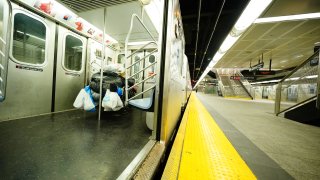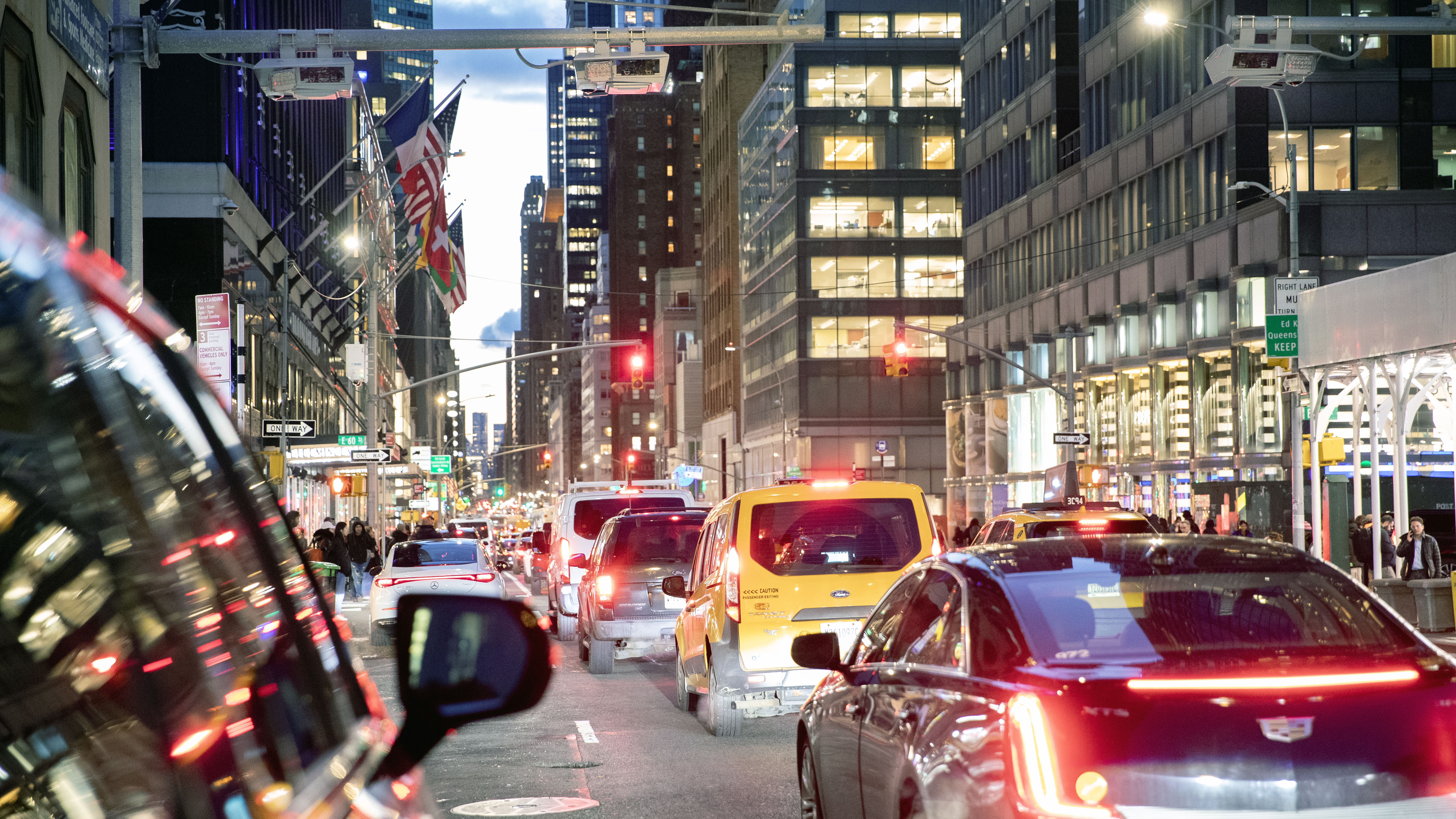
The MTA has continued to serve New York City's essential workers during the COVID-19 pandemic, operating subways and buses while encouraging all to maintain social distancing on board. However, one group of riders has been making that more difficult.
Interim NYC Transit President Sarah Feinberg said that the transit agency has become "frustrated by what feels like an increasing number of homeless population" riding the city's subways — and thereby providing less space for essential personnel to always keep their distance from other riders.
"Everyone here is losing patience with the situation," said Feinberg.
The NYC transit boss said that the problem may not so much be with the people themselves, but rather their "belongings taking up space." With reduced subway service, some straphangers have found it more difficult to find adequate room on subway cars, even as the number of riders has decreased dramatically.
Subway ridership has plummeted nearly 90 percent since the beginning of the crisis, with city buses down more than 70 percent. The agency previously requested a $4 billion bailout from the federal government.
As for the homeless issue, Feinberg put the onus on Mayor Bill de Blasio and his administration to find a solution.
"We are urging the city to take more responsibility with this problem," Feinberg said. "We are doing so ourselves with MTA police moving people of and offering them safe haven space or shelter beds."
The MTA meanwhile has been dealing with more grim problems regarding their employees. The agency said that 83 workers had died as a result of COVID-19. While a staggering total, MTA Chairman Pat Foye said that the agency protected workers as much as possible, saying the deaths havor more to do with location in NYC rather than work conditions.
Saying the city is the epicenter for the virus in the U.S., Foye said the number of deaths out of their 55,000-employee workforce is in line with city trends given fatalities. According to the city's Department of Health, nearly 15,000 NYC residents have died from the coronavirus.
Local
“I’m proud that we’ve been the most aggressive transit agency in the country in acting quickly and decisively to protect our workforce," Feinberg said.
If there were any regrets, Foye said it had more to do with follwoing the advice of the country's health officials during the earlier stages of the crisis.
"I regret they gave the advice they did to the entire country," Foye said. In early March, officials said that face masks were not necessary and that hand-washing would help protect against the virus. It is now known that face masks can indeed help prevent the spread of the coronavirus, but it may have been too late for some MTA workers.
Still, the agency has a tall task ahead, even if the spread of the virus is slowing: getting people to trust that riding public transportation is safe.
"We have an obligation to convince the public it's safe to get on a subway, train or bus," Foye said.



